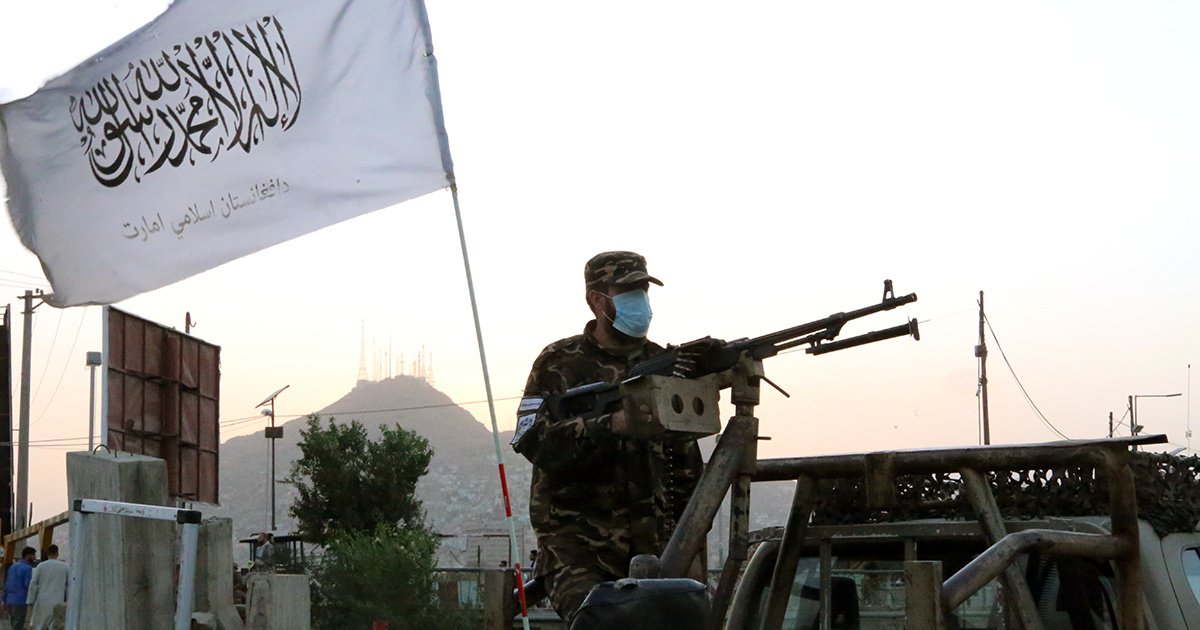A quarterly report on the situation in Afghanistan by the United Nations has documented a surge in attacks by armed groups fighting Taliban rule. It also noted “persistent” internal tensions among de facto Afghan leaders.
The U.N. Assistance Mission in Afghanistan, or UNAMA, released the assessment Friday, noting that Secretary-General Antonio Guterres recently submitted it to the Security Council.
The report stated that the armed opposition “did not pose a significant challenge” to the Taliban’s hold on territorial control since they regained power in August 2021.
“Two opposition groups conducted verified attacks during the reporting period: the Afghanistan Freedom Front [AFF] and the National Resistance Front [NRF],” the document stated.
The U.N. said both groups focused on attacking Taliban security forces in the capital, Kabul.
The report stated that the NRF carried out “29 confirmed attacks” in the past three months, with 20 in Kabul and the rest in the northern Afghan provinces of Takhar, Baghlan and Parwan. The AFF conducted 14 attacks, all of which took place in the national capital.
“Both groups used hit-and-run tactics against de facto security forces, throwing grenades in 22 attacks and using improvised explosive devices in seven others,” said the U.N. report.
It stated that an NRF-claimed attack on February 26 targeted the Taliban-run military zone of Kabul International Airport, firing three mortars on the installation but causing no confirmed damage or casualties.
A spokesman for the NRF disputed the U.N. assessment, saying it is “deeply disappointing” to see the world body downplaying the security and other crises in Afghanistan.
“Notably, the National Resistance Front of Afghanistan has conducted over 160 successful operations in Kabul and various provinces this year, yet only 29 have been reported,” Ali Maisam Nazary said on social media platform X. “This lack of accurate reporting undermines the true situation on the ground and does a disservice to the people of Afghanistan,” he wrote.
The U.N. findings come as the Taliban’s crackdown on media has made it extremely difficult for reporters to access authentic information and to verify insurgent claims.
Taliban officials have not yet commented on the U.N. report.
The Afghan rebel groups, NRF and AFF, are made up of political and military officials of the internationally backed government in Kabul that was ousted from power by the then-insurgent Taliban.
Taliban authorities also have played down the armed insurgency, claiming they have restored peace through war-torn Afghanistan with public support and they have established control over all 34 of the country’s provinces.
The male-only Taliban government is internationally isolated and condemned for its sweeping curbs on Afghan women’s and girls’ access to education and employment.
No country has formally recognized the Taliban leadership, nor has any foreign government, including the United States, encouraged a war against the de facto Afghan rulers.
IS threat
The U.N. report also documented six attacks by an Afghan-based Islamic State affiliate, known as Islamic State-Khorasan, in the reporting period. The violence was mostly targeted at the Taliban, including a suicide bombing outside a bank in southern Kandahar city on March 21.
The Kandahar blast killed at least 25 Taliban security forces and wounded 45 others, along with five Afghan civilians, according to the U.N. report. Taliban officials had formally confirmed only three fatalities, saying the attack injured about a dozen people, though they did not identify the casualties.
U.S. military commanders and intelligence chiefs have described IS-Khorasan as the most potent threat to Taliban rule in Afghanistan and beyond. The Kabul government maintains that its sustained counterterrorism operations have significantly degraded IS-Khorasan’s presence in the country, along with its ability to launch attacks internally or externally.
Taliban rifts
The U.N. report released Friday also observed “some divergent views” within the Taliban over governance issues.
“The de facto authorities maintained public unity and exerted authority over the entire national territory, although some internal tensions persisted within their structure. They continued their outreach with communities to bridge gaps and elicit their support while reducing the space for men and women to conduct civil and political activities,” the quarterly assessment stated.
Taliban officials repeatedly have dismissed as Western propaganda allegations of internal rifts involving their reclusive supreme leader, Hibatullah Akhundzada, and Interior Minister Sirajuddin Haqqani.
“These are just rumors, not true,” Suhail Shaheen, the head of the Taliban’s Qatar-based political office, said in a brief statement Thursday when asked for his comments on the reported divisions

